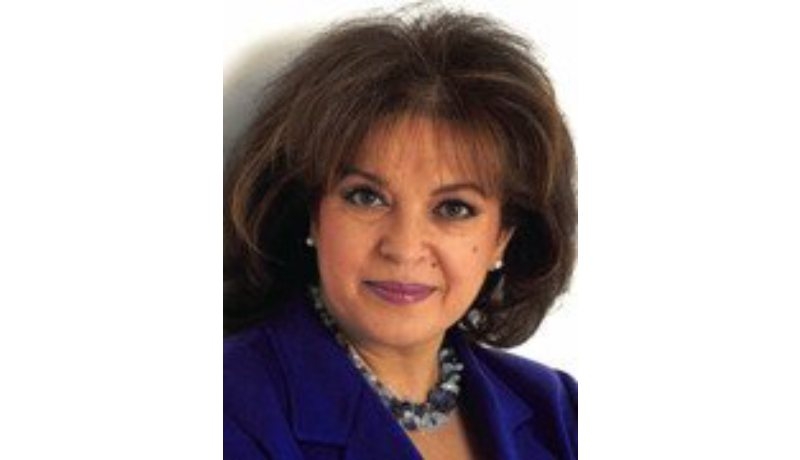Who will rescue us from catastrophes?
What happens when leading Western nations abandon their human rights commitments and even act to undermine the institutions of international justice? Authoritarian, corrupt and sectarian regimes claim the green light to trample their citizens’ rights with impunity. Myanmar’s Rohingya have endured policies of ethnic cleansing and genocide, forcing about 700,000 refugees into Bangladesh. In the nearby Indian state of Assam, some four million people, mostly Muslims, were recently excluded from the state register, with fears that mass detention camps are under construction as a step towards expelling them altogether. Assam has an ugly history of communal violence, with hate speech increasingly normalized among the political classes, and alarming tendencies to denounce all Muslims as terrorists and illegal immigrants. A state deputy for the ruling Bharatiya Janata Party chillingly warned that “if these Rohingyas and Bangladeshi illegal immigrants do not leave India respectfully, then they should be shot and eliminated.” Not long ago, Narendra Modi was viewed as a fringe Hindu hardliner whose inflammatory rhetoric should not be taken seriously. Today, he is feted worldwide as India’s prime minister, despite communal violence since his BJP’s 2014 rise to power surging by 28 per cent. Such escalation risks a return to the ultraviolence of past decades, when thousands were murdered in appalling bouts of bloodletting between Hindu, Muslim and Sikh communities. “Cow protection” vigilante mobs have recently brutally lynched dozens of non-Hindus following spurious rumors that they were observed preparing beef. The UN describes the Rohingya genocide as a “textbook example of ethnic cleansing.” Shouldn’t such a conclusion automatically necessitate some form of global intervention? Yet has Donald Trump ever mentioned the Rohingya? Does he know who they are? Meanwhile, other Western leaders express little more appetite than Trump for imposing consequences. The mechanisms for conflict resolution and justice lie in tatters. Chronic tensions between Russia and the West mean that meaningful UN Security Council resolutions are inevitably vetoed, with China discretely blocking measures against regimes complicit in war crimes. Trump, meanwhile, is virulently hostile to multilateral action and international institutions, cutting funding to various branches of the UN and undercutting America’s closest allies. It isn’t just that the post-World War II order is fundamentally broken; few observers are even aware of this damage, let alone applying serious thought about what a fair and robust new global framework would look like. To paraphrase the poet T S Eliot: This is the way that international justice dies; not with a bang, but a whimper. The world has never been entirely free of low-level wars. However, civil conflicts are increasingly sucking in multiple states, like the overlapping conflicts in Syria and Iraq, which are exacerbated by sectarian paramilitaries, Turkish, Iranian and Russian interference, and heightened sectarian tensions in Lebanon — not to mention the prospect of Israeli intervention. Across Syria, Iraq and Lebanon, states have ceded control of huge territories to transnational Iran-backed militias with their own hostile agendas. From Mali to Libya to Nigeria, marauding extremists circulate freely, as expansive regions fall outside of the state’s remit. A perfect storm of conflicts straddling Somalia, Sudan and the Central African Republic likewise threaten unimaginably vast areas with perpetual instability, lacking even a veneer of effective government. Central American statelets are destabilized by narcotics networks mightier than the nominal regimes over which they often exercise control. Chronic conflict in Afghanistan continues to rock Central Asia. At what point do these pluralized conflicts reach a critical mass, causing an inexorable epidemic of state collapse to radiate out across wider regions already weakened by mass refugee movements, arms smuggling, terrorism and spillover communal tensions? Is the world ready to coexist alongside a plurality of paramilitary, separatist and terrorist forces, which — on the model of Daesh’s “Caliphate” — themselves mutate into volatile quasi-states? Mature governance arises not through revolutions or pre-prepared templates imported from the West. Flourishing nation-states emerge after decades of patient nurturing of accountable institutions, ensuring supremacy of the rule of law. Years of work are lost overnight when anti-democratic forces capture or co-opt the state. The past decade has seen dozens of states succumbing to rigid autocracy, sectarian polarization or chronic fragility — partly a consequence of international institutions abandoning their traditional roles of cultivating good governance, economic development and democratization. The state system is also menaced from within the citadel of the Western world. Malevolent meddlers like Steve Bannon are working to unite and empower Europe’s far-right movements, which are emboldened by the Trump surge, with authoritarian populists already in power in Hungary, Austria, Poland and elsewhere. These neo-fascists are stampeding their way into government by fomenting panic and hostility against demonized Muslim refugees. Liberal Western values have been outflanked and thrown onto the defensive by these far-right forces of darkness, who have hijacked the political agenda. Likewise in India, Modi is only celebrated by some as a reasonable, progressive statesman because his ruling party has cultivated and mobilized figures 100 times as radical as he. With rudderless Western states turning inwards and destabilized developing states exploding outwards, the international community is sleepwalking into a dangerous and unpredictable era, where the nation-state system is no longer pre-eminent and the mechanisms of international justice are non-existent. Such tendencies aren’t inevitable or irreversible, but decision-makers must wake up to the threat, act decisively to stop the rot, and restore global capacity for collective action. As Europe plunged toward the senseless, ruinous World War I, Britain’s Foreign Secretary Edward Grey commented: “The lamps are going out all over Europe, we shall not see them lit again in our lifetime.” As the lamps of liberal democracy and global justice are snuffed out around the world, do our leaders have the foresight to rescue us from catastrophe?
Related Posts

